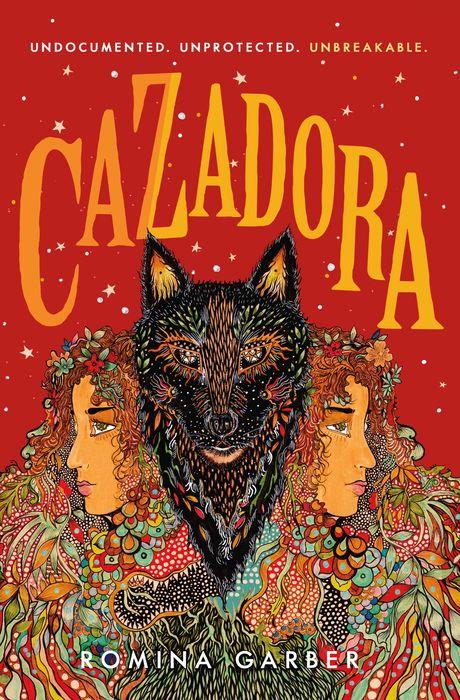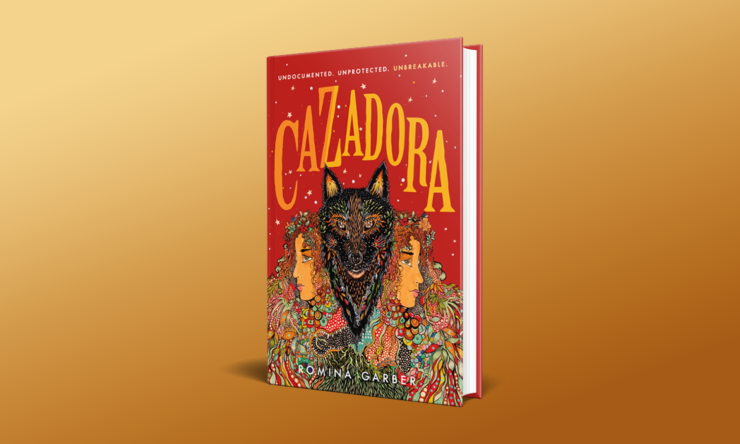For her whole life, Manu has lived as an undocumented person, first as an Argentinian immigrant in Miami and now as the “illegal” child of a human and a Septimus (a magical person). Her werewolf father wants to protect her from his people just as her human mother wants to protect Manu from hers. After the events of the first book, Manu goes on the lam with her Septimus friends, Tiago, a lobizón (a male werewolf) and Manu’s crush, Cata and Saysa, brujas (female witches) who are also secret girlfriends. They race to keep ahead of the Cazadores (basically, a cross between the cops and ICE, but with magic) who want to kill Manu for violating the laws of their portal world of Kerana.
Along the way, the teens meet non-compliant Septimus living on the fringe or hiding in plain sight who all have their own reasons for wanting to break down the walls of their oppressive society. But do they want to dismantle the system or simply reform it? The former would allow Manu to live freely and openly, while the latter would consign her to second class citizenship, with no rights and no say in her life. How much are her friends and new allies willing to risk for Manu? For the betterment of their people? All Manu wants is to finally have a home where she can be herself without fear. In Cazadora, that may be a dream beyond her grasp.
The Wolves of No World series pulls you in with enchanting characters and a clever premise, but it’s the fascinating world building that keeps you hooked. In Lobizona, readers got a taste of the portal worlds of Kerana and El Laberinto and the complex magical system that runs through them like a skeleton. In Cazadora, Garber goes for broke with world building. The reader follows Manu, Cata, Saysa, and Tiago across districts and manadas, volcanoes to the ocean floor. We meet a host of Septimus whose bodies and identities clash against the rigid rules of their society, and get to know more about the Cazadores who will do whatever it takes to enforce those rules. Garber shows us that Kerana is more varied than its denizens think.
Buy the Book


Cazadora
Here’s where we have to take a step back and, like we did with the first book, consider the context of colonialism. The world of Kerana is Argentinian, with roots going back to the Indigenous people from the pre-contact era. It applied European/Western ideals onto Indigenous cultural traditions, and now acts like this is the way it has always been. At one point Manu has a conversation with one of the few Black Septimus and realizes that colorism isn’t just a human thing. Another character shares how social worth is tied to the ability to produce and reproduce, and what it’s like to move through that kind of world with a physical disability and without accommodations. Later, Manu is given the label “la ilegal” in reference to her status as an undocumented person. In other words, the Septimus can look down on humans all they want, but they aren’t all that different from them. They are colonizers, too.
In my review of the first book, I discussed how Garber dismantled magic school tropes in some really interesting ways. Many of the ideas she explored on a surface level in Lobizona get a deep dive in Cadazora. Garber is about as subtle as a sledgehammer, but it’s necessary work. I never read the Harry Potter books, but from what I’ve pieced together from the movies and the endless Discourse about the series, I can see where Garber’s books stand in direct challenge. Here, we have a Chosen One main character with an ancient prophecy foretelling of impending doom. However, instead of Manu using her position to reinforce the status quo, she decides to break the whole damn system.
With this series, and Cazadora especially, Garber does Harry Potter better and with more thoughtfulness and depth than She Who Must Not Be Named ever did. There is clear intention with how Garber builds out this magical world and how the Septimus navigate and influence it. We see how race, disability, queerness, nonconformity, and different gender expressions and identities affect and are affected by this world. This feels like a lived in world populated by real people, which makes the consequences of Manu’s inevitable rebellion even graver.
The Boy Who Lived may have been able to overlook the regressive and racist attitudes in his wizarding world, but Manu rejects the idea that the Septimus who are different should accept their oppression. Manu doesn’t want to be tolerated or to cut off bits of herself in order to fit the narrow social roles of Kerana; she wants to be her whole, true self. Ultimately, Manu wants what most teenagers want: to be seen. In the first book, she is forced out of hiding by circumstances beyond her control. In this book, others try to force her back into hiding. Except now she’s seen enough of her father’s magical world and her mother’s mortal one that she would rather die as Manu the lobizona than hide in fear and shame for the rest of her life.
A few parts of the book feel either redundant or like wheel spinning. In particular, there’s a scene involving pirates that, while fun, is wrapped up too quickly and adds little to the plot. I hope we revisit them in the third book, otherwise it’s kind of a wasted idea. But this is a minor issue. If the complaint is “give me more of this very cool thing,” does it even count as a negative?
Cazadora is one of the rare second-in-a-series books to not only live up to the first book but surpass it. It has all the heart and soul of Lobizona, but with fresh coats of anger and revolution layered on top. The ending brings some devastating closure to Manu’s life while setting up a compelling new premise for the next novel. Whatever Romina Garber is working toward, I will definitely be along for the ride.
Cazadora is available from Wednesday Books.
Alex Brown is an Ignyte award-winning critic who writes about speculative fiction, librarianship, and Black history. Find them on twitter (@QueenOfRats), instagram (@bookjockeyalex), and their blog (bookjockeyalex.com).










